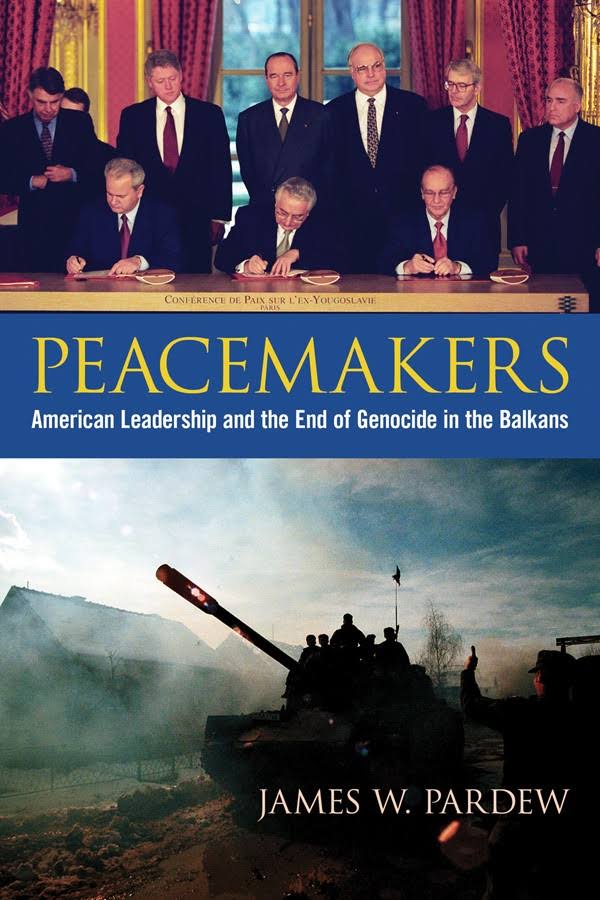"PEACEMAKERS. American Leadership and the End of Genocide in the Balkans"
Rome – March 12, 2018
With its historic level of national power, the United States often faces difficult choices on when, where and how to respond to the variety of conflicts and humanitarian disasters around the world. These decisions are particularly challenging when no direct or immediate threats to American national security interests are apparent. The human tragedies produced by the breakup of Yugoslavia presented just such a complicated set of policy choices for the U.S. In the case of the Balkans, U.S. national leaders, after a reluctant start, combined aggressive diplomacy, the selective use of military force and multilateral cooperation to restore peace and stability in Southeastern Europe.
An accident near Sarajevo in 1995 thrust the author, James W. Pardew, into the center of U.S. negotiations to stop the fighting in Bosnia. From there, a series of diplomatic assignments placed him at the heart of U.S. policymaking on the Balkans from 1995 until 2008. During that period, he witnessed first-hand U.S. leadership of the international effort to end the wars and human suffering in the former Yugoslavia. Pardew’s personal journals containing notes taken during events and negotiations as they happened form the core of the historical record presented in PEACEMAKERS. Those notes have never been used in other publications.
PEACEMAKERS shows how Richard Holbrooke and the U.S. envoys who followed him helped to end or prevent a series of vicious ethnic wars. It describes the human drama of war and diplomacy in the Balkans, and it illuminates the motives, character, talents and weaknesses of the range of heroes and villains involved.
PEACEMAKERS is the first comprehensive history by an official directly involved in the U.S. response to the agonizing dismemberment of Yugoslavia. It is a unique first person account of diplomacy and national policy-making, and it offers important judgments on the nature and consequences of the U.S. engagement in the Balkans. The author also presents his personal views on American diplomacy in a crisis for consideration by future U.S. envoys in similar situations.


